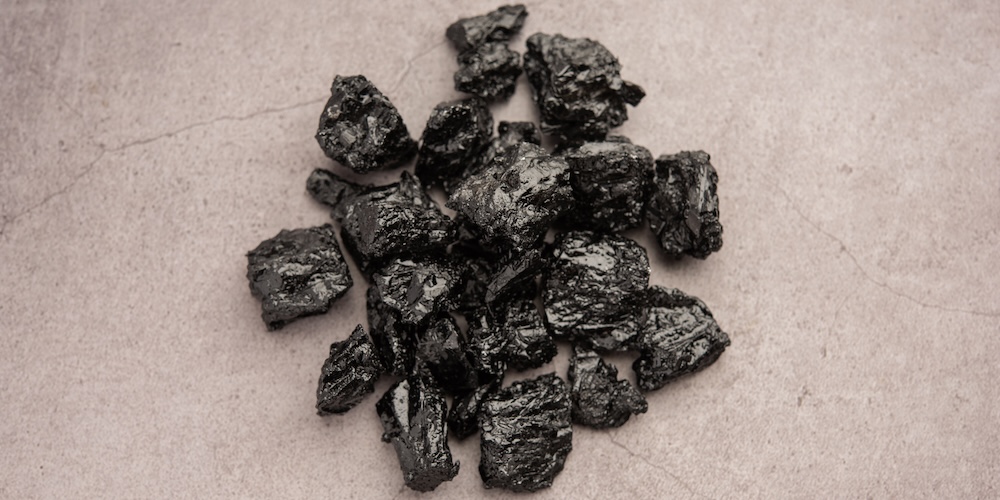If this term sounds unfamiliar, you might know it by its other name, the “Himalayan tear”.
This dark mineral substance comes directly from the Himalayas, the Caucasus, and other mountainous regions. On the market, shilajit is available as a powder to be diluted, but also as capsules or resin.
Although its viscous texture may recall that of tar, shilajit is nonetheless packed with numerous active compounds and micronutrients:
- fulvic acid
- humic acid
- minerals and trace elements
- amino acids
- vitamins
This nutritional richness would be behind the touted benefits of shilajit. But what does the science say about it? I took a close look at the 5 main benefits commonly claimed for it.
1. It supports cognitive abilities
Certain scientific studies have shown that the fulvic acid contained in shilajit could prevent the formation of protein aggregates that lead to amyloid plaques in the brain. These plaques are involved in the development of neurodegenerative diseases such as Alzheimer’s disease.
Shilajit would thus act as a neuroprotective agent.
However, the scientific evidence remains weak and uncertain, and it would be useful to conduct studies in humans to confirm this benefit.
In any case, its rich antioxidant content, which plays a role in preventing premature aging, remains beneficial for maintaining cognitive function.
2. It increases testosterone levels and regulates hormone production
We often hear about shilajit for its ability to regulate testosterone levels in the body. This is due to the high content of humic and fulvic acids in its composition.
But what does the science say? During my research, I came across a study conducted on men aged 45 to 55. Daily intake of shilajit for 90 days showed a significant difference in testosterone levels compared to a placebo group. Quite promising!
3. It increases your energy levels
Increasing energy levels, this is the primary traditional use of shilajit. It’s also one of the main reasons many athletes choose to use it as a supplement.
A study even showed that taking 500 mg per day of shilajit supplements for 8 weeks is likely to improve muscle strength.
These benefits are thought to be due to its richness in fulvic acid and its adaptogenic properties, which help the body better cope with stress.
4. It supports heart health
Some preliminary studies in rats and crustaceans have appeared to show modest cardioprotective effects when shilajit is ingested in small amounts, notably reducing the severity of heart lesions in this study.
Nevertheless, there is no evidence in humans, and it does not in any way replace medical treatment.
5. It stimulates the immune system
Thanks to its antioxidant properties and adaptogenic effects, some studies point to shilajit ’s potential to support a healthy immune system.
Few studies support these claims, however. I did find one study indicating that a diet supplemented with shilajit allows a significant immune response in a fish species against an opportunistic pathogen.
Good to know before you start
As with most dietary supplements, taking shilajit may cause digestive issues (nausea, diarrhea, stomach pain).
There is also a potential risk of allergy. If skin or respiratory symptoms appear, please consult a healthcare professional and discontinue supplementation.
It is recommended to avoid any supplementation in children, as well as in pregnant and breastfeeding women.
The same applies if you suffer from significant digestive disorders (gastritis, ulcer).
Finally, I advise against taking shilajit if you are taking antihypertensive medication or medication for diabetes. Indeed, shilajit is known for its blood sugar -lowering effects that could interact with your medications.
Sources and scientific studies
- Cornejo A et al, 2011, Fulvic Acid Inhibits Aggregation and Promotes Disassembly of Tau Fibrils Associated with Alzheimer’s Disease.
- S. Pandit et al., 2015, Clinical evaluation of purified Shilajit on testosterone levels in healthy volunteers
- Keller JL et Al, 2019, The effects of Shilajit supplementation on fatigue-induced decreases in muscular strength and serum hydroxyproline levels.
- Joukar, S. et al., 2014, Cardioprotective Effect of Mumie (Shilajit) on Experimentally Induced Myocardial Injury.
- Musthafa, M. et Al, 2018, Protective efficacy of Shilajit enriched diet on growth performance and immune resistance against Aeromonas hydrophila in Oreochromis mossambicus.



